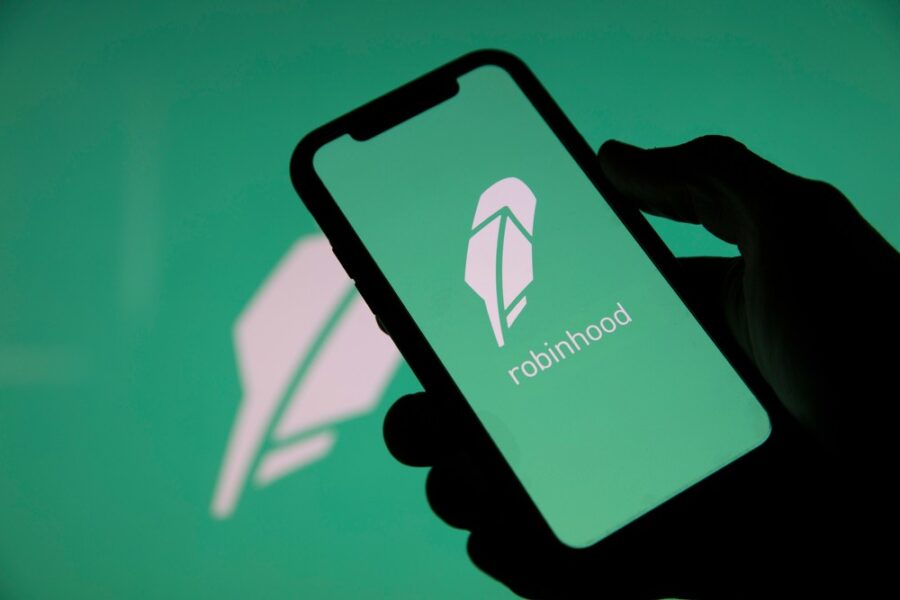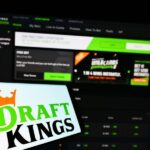Robinhood vice president mulls prediction platform growth via acquisition or JV

Robinhood Vice President and General Manager of Futures and International JB Mackenzie has said that Robinhood’s prediction market platform is keeping its options open regarding acquisition.
Mackenzie said that Robinhood could consider a joint venture or partnership as an alternative to an acquisition.
In an interview with Reuters, he said, “We as a firm are going to be looking to see if there is an acquisition that’s available. I’m always looking to see if there’s something of interest, if there is, we’ll pursue it and see if it’s the right fit. That being said, what we also know is we have really good engineers that build great products here.”
Prediction markets grew in popularity after the US presidential election last year. Now, with the introduction of sport prediction markets and since its partnership with Kalshi in March, it is estimated that Robinhood users account for 25-35% of Kalshi volumes each day.
The prediction platform has surged recently, with fellow operators Kalshi and Polymarket recording US$1.4 billion in trading volume last month.
Last week, New York Stock Exchange-owner Intercontinental Exchange revealed it had invested US$2 billion in Polymarket.
Robinhood has also begun expanding internationally, with reports that it has been speaking to foreign regulators, including the UK’s Financial Conduct Authority, to see how its products would be structured under local frameworks.
Abi Bray brings strong researching skills to the forefront of all of her writing, whether it’s the newest slots, industry trends or the ever changing legislation across the U.S, Asia and Australia, she maintains a keen eye for detail and a passion for reporting.
Verticals:
Sectors:
Topics:
Dig Deeper
The Backstory
How Robinhood turned curiosity into a business line
Robinhood’s push into event contracts began as a test and has become a material business. The company rolled out a prediction markets hub inside its app through its derivatives unit in March, giving eligible customers access to CFTC-regulated event contracts via Kalshi. The debut coincided with March Madness and marked a formal entry into a category that straddles finance and wagering. The company framed the product as trading rather than traditional betting and limited college sports participation in line with rules. That launch, outlined in Robinhood launches prediction market in time for March Madness, came after an earlier attempt to list Super Bowl contracts was halted by the CFTC.
The thesis that prediction markets could deepen engagement has held. By late summer, Robinhood added football, opening markets tied to the NFL and college games for the first two weeks of their seasons, with plans to expand to weekly offerings. The company pitched the format as an order-book venue with prices set by buyers and sellers, not house odds. Details are in Robinhood launches prediction markets for NFL season.
Revenue followed. Piper Sandler estimated sports and event contracts had already produced about $200 million for Robinhood, helping justify a higher price target and a stronger buy case on Wall Street. The firm highlighted Robinhood’s revenue-sharing tie-up with Kalshi, which splits fees evenly. The momentum and risks are laid out in Prediction markets drive US$200 million surge for Robinhood.
Scale meets structure: the Kalshi pipeline and its constraints
Kalshi’s role is central. Robinhood pipes customers to Kalshi’s federally regulated exchange and participates in fees, a model that has sped adoption without requiring Robinhood to secure its own event-contracts license. The trade-off is exposure to Kalshi’s regulatory battles. Several states have challenged whether sports-linked contracts fall under gaming law, while Kalshi argues they are financial hedges regulated by the CFTC. Piper Sandler flagged those disputes as a key overhang in its note on Robinhood’s surge.
The market backdrop is expanding fast. Combined monthly volumes at Kalshi and Polymarket reached about $1.4 billion recently, according to The Block’s tracker of Polymarket and Kalshi volume. That scale has drawn bigger capital and sharper scrutiny. New contracts and features aimed at sports fans have tested the line between financial hedging and gambling. See Front Office Sports on Kalshi’s latest moves in props and parlays amid legal uncertainty.
For Robinhood, the reliance on a partner that faces state-level pushback creates both speed and fragility. It can ride Kalshi’s category growth but must adapt to legal changes and contract bans that vary by jurisdiction. The company has signaled it will list only within regulatory guardrails and avoid controversial markets, a stance reinforced in its overseas conversations.
Product choices signal a broader ambition
Robinhood has presented event contracts as part of a one-stop trading experience. Football listings and a steady cadence of new markets have brought the product closer to mainstream sports wagering while preserving an exchange-like feel. That positioning was clear in the NFL rollout, where Robinhood emphasized order-book dynamics over bookmaker spreads.
Execution has not been linear. The company’s early Super Bowl experiment was paused by the CFTC, prompting a reset and a tighter compliance posture before the spring relaunch through Kalshi, as detailed in the March Madness coverage. Even with those guardrails, the market set responds to seasonal demand, with football lifting volumes and fees, which supported Piper Sandler’s revenue view in its analysis.
Internally, Robinhood has kept optionality on how to scale. JB Mackenzie, who leads futures and international, said the company is evaluating acquisitions, joint ventures and pure build. The stance, captured in Robinhood vice president mulls prediction platform growth via acquisition or JV, reflects a balance: leverage in-house engineers while staying open to deals that bring licenses, product breadth or regulatory positioning.
Rivals maneuver as licensing becomes a differentiator
Traditional sportsbooks see the same opportunity but face a different regulatory map. Event contracts can operate in large states without legalized sportsbooks, including California and Texas, making them a potential entry point for consumer demand that books cannot serve. That gap has catalyzed interest from major operators and startups.
DraftKings, which withdrew a federal event-contract application in April, is exploring a shortcut to market. It has held talks to acquire Railbird Exchange, a federally licensed prediction platform, according to DraftKings mulls acquisition of prediction market Railbird Exchange. FanDuel has discussed a partnership with Kalshi, the same exchange powering Robinhood’s product, the report said. Kalshi’s valuation climbed to about $2 billion in its latest funding, underscoring investor confidence even as it faces lawsuits and cease-and-desist orders in some states. A New Mexico tribe has urged a crackdown, highlighting tax and regulatory disputes that standard sportsbooks already navigate on a state-by-state basis.
The interest is not limited to sportsbooks. Institutional backers have moved in as volumes grow. Recent industry reporting noted large investments tied to the sector’s breakout month, reinforcing that liquidity begets liquidity. Those inflows raise the bar for product and compliance sophistication that smaller entrants must meet.
Looking overseas for durability
Robinhood is mapping a global path to reduce U.S. regulatory concentration risk and unlock markets where oversight is clearer. The company has engaged the U.K. Financial Conduct Authority to determine whether event contracts would be supervised as swaps or gambling products and how to structure them accordingly. The strategy and its constraints are detailed in Robinhood eyes overseas expansion for prediction markets.
International expansion could diversify revenue while aligning listings with local norms. It also presents a choice: replicate the Kalshi model with a local exchange partner, seek licenses directly or buy capability. Mackenzie’s openness to acquisitions or joint ventures, as noted in his remarks on growth options, meshes with that calculus. The company has emphasized it will avoid sensational or sensitive markets regardless of jurisdiction, a position meant to blunt reputational risk and regulatory backlash.
The stakes: a new lane between Wall Street and sportsbooks
The category’s growth traces to a broader appetite for trading around news, politics, economics and sports. The recent $1.4 billion monthly turnover across leading platforms and the $200 million revenue boost at Robinhood show the commercial pull. The friction points are equally clear. State regulators, tribal authorities and gaming commissions are testing the limits of federal oversight. Exchange operators are widening offerings to capture demand, drawing fresh scrutiny of whether some listings look too much like betting.
For Robinhood, the near-term questions are execution and control. It can ride Kalshi’s expansion and keep investing in front-end experiences that convert mainstream users. It can also seek a license, buy one through a deal or pursue a joint venture to secure more control over listings and compliance. The company is already signaling that playbook in its comments on potential acquisitions or JVs and by probing non-U.S. routes in the U.K. and beyond.
Competitors will not wait. DraftKings’ talks with Railbird in its prospective deal and FanDuel’s interest in partnerships point to a convergence: sportsbooks and trading apps vying for the same consumer trade. The outcome will hinge on licensing, product design and where regulators draw the line. If the line favors exchange models, Robinhood’s early moves could compound. If not, the company will need the flexibility it has promised to keep growth on track.






